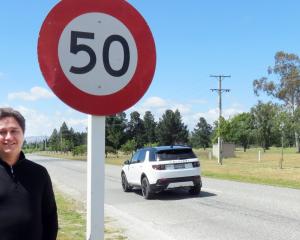
Prof Janine Hayward, of the University of Otago, said they should simply determine whom they like and rank them in order.
"Remember that you do not need to rank everyone," she said.

Fifty-four candidates have put their names forward for 14 councillor positions on the Dunedin City Council — the largest field this century, at least.
Prof Hayward thought this reflected the council’s high profile since the last election.
The council’s campaign to prevent government cuts to the new hospital was an example, she said.
A high number of candidates might show they thought councils could make a difference to people’s lives — "which of course they can", Prof Hayward said.
"It is certainly very good for local democracy to have a competitive election and it may help boost voter turnout to have so many campaigns going on across the city."
The number of candidates for Dunedin councillor positions was just 21 in 2001, which was the last time the city council used the first-past-the-post (FPP) electoral system.
The Dunedin City Council then switched to using the single-transferable vote (STV) system, which the Otago Regional Council will this year use for the first time.
Prof Hayward said Dunedin voters had done well in the past two decades to navigate both systems.
Having just one system for the city council and regional council would be helpful for Dunedin voters, she said.
However, the Queenstown Lakes, Central Otago, Clutha and Waitaki District Councils have stuck with FPP.
Prof Hayward said the regional council would need to be clear with these areas about ranking candidates under the STV system — instead of giving them a tick.
She expected the FPP district councils would carefully consider changing to STV in the future.
"This will produce election results that better reflect the way their community voted and make the process of voting much more straightforward for voters."
The Otago Daily Times asked Prof Hayward to share a few tips about how voters considering the list of potential councillors might best arrive at their rankings.
Information from media or candidate summaries could be supplemented by seeing candidates in person at local events and this could help people decide who might be good on council, she said.
"Once you have a list of who you like — whether that list is long or short — rank them starting at ‘1’ for who you like best.
"You don’t need to be strategic or worry about whether that candidate is likely to get more support than they need, or not enough support, to get elected."
Prof Hayward said STV was designed to ensure votes were not "wasted" in either case — they were transferred to reflect voters’ next preference.
"Once you have ranked all the candidates you like in order, your job is done."











